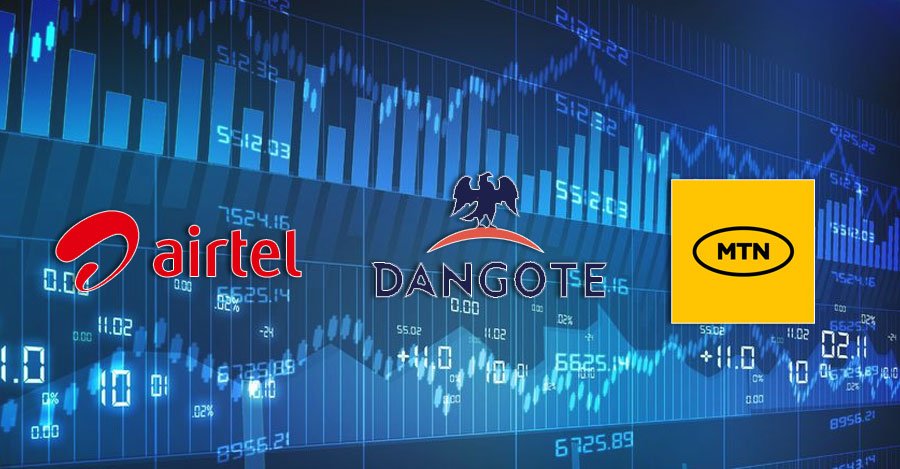Introduction
Nigeria’s economic landscape is undergoing significant transformation, making the nation an increasingly attractive destination for investment and business development. As we approach 2025, various factors such as technological advancements, demographic shifts, and evolving market dynamics are shaping the opportunities available for companies operating within its borders. Understanding these elements is vital for identifying which enterprise is likely to emerge as the most valuable company in Nigeria.
One prominent aspect of Nigeria’s economy is its youthful population, which presents a vibrant consumer market. With a median age of around 18 years, this demographic is not only significant in size but also possesses increasing purchasing power, driven largely by technological engagement and entrepreneurship. Over the next few years, this generation will continue to reshape sectors such as finance, retail, and technology, suggesting a critical area for companies aiming for growth.
Moreover, Nigeria’s emphasis on infrastructural development and government policies aimed at enhancing ease of doing business significantly influence the operational landscape. Initiatives aimed at fostering a conducive business environment are encouraging local and international investors to explore opportunities more vigorously. Sectors such as renewable energy, information technology, and agriculture are expected to witness remarkable growth, presenting a competitive advantage to businesses that can effectively navigate these emerging markets.
Furthermore, the presence of abundant natural resources combined with ongoing reforms in the oil and gas industry can also propel existing companies and create favorable conditions for new entrants. The interplay between traditional industries and innovative startups could result in a unique marketplace where adaptability and forward-thinking will be crucial.
In summary, the journey towards identifying the most valuable company in Nigeria by 2025 necessitates a comprehensive understanding of the evolving economic environment and the various factors that contribute to business success in this dynamic landscape.
Understanding Nigeria’s Economy in 2025
Nigeria’s economy is projected to undergo significant transformation by 2025, driven by several key factors that promise to enhance its growth prospects and attractiveness to investors. The country is anticipated to experience a robust increase in its Gross Domestic Product (GDP), with estimates suggesting a growth rate that aligns with or surpasses the average for emerging markets. This positive trajectory is primarily fueled by diversification efforts away from oil dependency, which has historically shaped the Nigerian economic landscape.
Foreign investments are expected to play a critical role in this growth. The government has been proactive in implementing reforms aimed at improving the business climate, such as reducing bureaucratic hurdles and enhancing transparency. Regulatory changes, including those targeting taxation and ease of starting a business, are set to attract international corporations looking to establish a foothold in Nigeria’s burgeoning markets. These reforms are likely to create an environment conducive to higher levels of Foreign Direct Investment (FDI), particularly in sectors like technology, agriculture, and renewable energy.
Furthermore, technological advancements will further invigorate the economy. With the rise of fintech, e-commerce, and digital services, Nigeria is poised to leverage its youthful population and increasing internet penetration. The integration of technology into various sectors is expected to boost productivity and create new business opportunities, which will be essential for the nation’s overall economic landscape. The convergence of these trends highlights a more diversified economy that could support the emergence of entities vying for the title of the most valuable company in Nigeria by 2025.
As stakeholders monitor these developments, it becomes apparent that a comprehensive understanding of the economic environment is essential to identify potential candidates for this esteemed title. The interplay of GDP growth, foreign investments, regulatory changes, and technological progress will be crucial in shaping Nigeria’s economic future.
Key Sectors Driving Growth
Nigeria’s economic landscape is poised for transformation, driven by several key sectors that are likely to define its trajectory towards becoming a leading economy by 2025. Among these sectors, technology stands out as a pivotal contributor, spurred by a burgeoning ecosystem of startups and digital innovation. With increasing internet penetration and a young, tech-savvy population, Nigeria is rapidly becoming a hub for tech entrepreneurs. This growth is further fueled by investments in fintech, e-commerce, and digital services, which are improving access to financial resources and infrastructure.
Additionally, the oil and gas sector remains a cornerstone of Nigeria’s economy, contributing significantly to government revenue and foreign exchange. Although fluctuations in global oil prices create challenges, ongoing investments in refining capacity and exploration technologies promise to bolster output and optimize production efficiency. The expansion of natural gas utilization is also notable, with initiatives aimed at harnessing gas for domestic electricity generation and exports, best positioning this sector as a robust growth driver.
Agriculture represents another critical sector that is garnering increasing attention. Recognizing the need for food security and sustainable agricultural practices, Nigeria has made strides in modernizing its agricultural framework. Investment in agritech, crop diversification, and value chain improvements are enhancing productivity and resilience within the sector. Moreover, with a growing population, the demand for food is projected to rise, creating opportunities for agribusiness players to thrive.
Telecommunications also plays a vital role in Nigeria’s growth narrative. The sector has experienced significant expansion, driven by increased mobile phone penetration and data consumption. As access to affordable communication becomes ubiquitous, the telecommunications industry is set to support economic activities across various other sectors, thereby enhancing overall productivity and connectivity. In conclusion, the convergence of these key sectors positions Nigeria favorably for economic growth and opportunities by 2025.
Profile of Leading Companies
Nigeria’s economic landscape is marked by diverse sectors ranging from telecommunications to oil and gas, agriculture, and fintech. Among the array of companies, a few stand out due to their strategic positioning and market impact. One of the most notable is MTN Nigeria, the telecommunications giant that commands a significant share of the mobile market. MTN’s business model, which revolves around offering a wide range of services including voice, data, and digital solutions, has contributed substantially to its valuation and growth. By continuously innovating and expanding its service offerings, MTN has solidified its status as a market leader.
In addition to telecommunications, Dangote Group represents a formidable player in the manufacturing sector, particularly in cement and other commodities. The group’s robust supply chain and commitment to local production have enabled it to dominate the market. Dangote Cement, a subsidiary, is the largest producer in Africa, benefiting from high demand stimulated by ongoing infrastructure projects. The company’s strategy emphasizes cost leadership and strategic partnerships, which position it favorably against competitors.
Another company worth noting is Access Bank, which has emerged as a key player in the banking sector. The bank’s growth trajectory has been bolstered by its aggressive acquisition strategy and diversification into retail banking. By focusing on financial inclusion and digital banking innovations, Access Bank is not only expanding its customer base but also increasing its market share significantly.
Market predictions suggest that by 2025, companies like Amazon Nigeria and Flutterwave could capture significant value, particularly due to the rising influence of e-commerce and digital payment solutions. Such trends highlight Nigeria’s transformation into a vibrant market full of opportunities. The analysis of these leading companies provides insight into what factors will influence which will ultimately emerge as the most valuable company in Nigeria by 2025.
The Rise of Technology and Innovation
Nigeria is experiencing a significant transformation in its business landscape, predominantly influenced by the rapid rise of technology and innovation. Industries across the nation are embracing digital solutions, paving the way for a new era, particularly in fintech, e-commerce, and mobile technology. The surge in smartphone penetration has catalyzed these technological advancements, boosting internet accessibility and enhancing consumer engagement.
Fintech has become a cornerstone of Nigeria’s economic development, with numerous startups emerging to address the financial needs of an increasingly digital-savvy population. Companies such as Paystack and Flutterwave have freed businesses from the constraints of traditional banking, enabling seamless transactions and fostering a culture of financial inclusivity. As these fintech players innovate, they adopt advanced technologies like Artificial Intelligence and blockchain, providing enhanced security and operational efficiency. The focus is not merely on convenience but on creating comprehensive solutions that cater to diverse financial demographics.
E-commerce is another area witnessing rapid growth, bolstered by technological advancements and shifting consumer behaviors. Platforms like Jumia and Konga are redefining retail by bringing goods and services to consumers’ fingertips. These companies have utilized data analytics and smart logistics to enhance customer experiences and optimize supply chains. The ongoing innovation within this sector poses opportunities for strategic partnerships and investments, fundamentally shifting how commerce functions in Nigeria.
Moreover, the smartphone revolution is an essential driver of this transformation. With over 50% of Nigerians now owning smartphones, businesses have direct access to a broader audience. This increased connectivity encourages tech companies to innovate continually, ensuring their services remain relevant and user-friendly. As technology continues to shape the business environment, Nigeria is poised for substantial economic growth, setting the stage for the most valuable company to emerge by 2025.
Investment Trends and Financial Analysis
The investment landscape in Nigeria has shown immense potential in recent years, with various sectors attracting substantial interest from both domestic and international investors. Notably, venture capital flows have surged, highlighting a growing appetite for start-ups and innovative businesses. In recent times, sectors such as technology, agriculture, and financial services have particularly benefited from this investment influx. This trend is anticipated to accelerate as Nigeria continues to position itself as a burgeoning hub for technology-driven enterprises.
Initial Public Offerings (IPOs) are another critical indicator of the investment climate in Nigeria. The Nigerian Stock Exchange has experienced an uptick in listings, reflecting investor confidence and the willingness of companies to access public capital markets. As companies seek to expand and diversify their operations, the IPO landscape is expected to play a significant role in funding growth initiatives. Analysts predict that more firms, particularly within the technology and consumer goods sectors, will pursue public offerings, further enhancing liquidity in the market.
Additionally, mergers and acquisitions (M&A) activity have become increasingly prevalent, demonstrating a shift in strategic focus among Nigerian companies. Businesses are recognizing the value of consolidation in achieving economies of scale and accessing new markets. The drive towards M&A is being bolstered by favorable regulatory changes and a more robust economic outlook, further solidifying Nigeria’s attractiveness as a destination for substantial investment. Financial metrics such as revenue growth, profitability margins, and market share will continue to serve as key determinants for assessing potential leaders in this dynamic environment.
Analyzing these trends provides a clearer picture of how Nigeria’s economic landscape is evolving and which companies are likely to emerge as frontrunners by 2025. As investments flow into promising sectors and financial analysis reveals positive indicators, stakeholders should be well-positioned to harness potential opportunities and foster sustainable growth.
Challenges Facing Businesses in Nigeria
Nigeria, despite its status as a burgeoning market, presents a multitude of challenges that can impede business operations and growth. One of the most significant issues is the inadequate infrastructure. Key sectors such as transportation, energy, and telecommunications suffer from inefficiencies that hinder effective business processes. Poor road networks delay product delivery, while frequent power outages disrupt production schedules, leading to increased operational costs. Without substantial investments in infrastructure development, businesses may find it difficult to maintain competitiveness and scale operations efficiently.
Another substantial challenge is the regulatory landscape, which is often characterized by bureaucratic bottlenecks and lack of transparency. Entrepreneurs frequently face obstacles in securing the necessary permits or licenses due to convoluted processes, which can deter both local and foreign investment. Furthermore, inconsistent regulatory enforcement can create an unpredictable business environment, causing companies to reassess their strategies and potentially leading to reduced company valuations. For instance, businesses may opt to downsize or delay expansion plans as a precautionary measure against potential regulatory changes.
Moreover, Nigeria’s economic stability is frequently threatened by various factors such as fluctuating oil prices, currency volatility, and inflation. The economy’s heavy reliance on oil exports means that adverse shifts in this sector can have cascading effects on other industries, causing instability. Companies operating within these contexts often need to implement flexible strategies to mitigate risks associated with the economic climate. This may include diversifying their product lines or exploring alternative markets as a means of safeguarding growth and ensuring longevity.
In order to overcome these challenges, businesses must adopt proactive strategies that involve thorough risk assessments and comprehensive contingency planning. Emphasizing resilience and adaptability will not only assist companies in navigating the existing barriers but also position them advantageously for future opportunities in the evolving Nigerian market.
Predictions for the Most Valuable Company in 2025
As Nigeria continues to experience economic growth and development, several companies stand poised to emerge as frontrunners in the race for the title of the most valuable company by 2025. A comprehensive analysis of industry trends, leadership effectiveness, and adaptability reveals key indicators that can inform predictions about which company will thrive in this dynamic environment.
First and foremost, strategic positioning plays a crucial role in determining business success. Companies that actively adapt to consumer demands and embrace technological advancements are more likely to succeed. For instance, the telecommunications and fintech sectors are rapidly evolving, driven by increased smartphone penetration and a growing preference for digital solutions among consumers. Firms such as MTN Nigeria and Flutterwave exemplify this adaptability. With their innovative service offerings, these companies enhance market penetration and strengthen their financial performance, making them prime candidates for valuation growth.
In addition to strategic positioning, strong leadership is essential for navigating the complexities of the Nigerian market. Leaders who foster a culture of agility and innovation, while also making data-driven decisions, can significantly increase a company’s market value. This is particularly important as businesses face challenges such as fluctuating currency values and regulatory changes. Additionally, committed Corporate Social Responsibility (CSR) initiatives can bolster both market reputation and consumer loyalty, which ultimately contributes to a company’s valuation.
Moreover, scalability is an important consideration as companies strive to expand their operations. Enterprises that capitalize on growth opportunities, both locally and internationally, will position themselves for sustained value creation. By focusing on an adaptable business model and innovative strategies, companies can respond effectively to market changes, thereby solidifying their standing in Nigeria’s competitive landscape.
In summary, the forecast for 2025 suggests that the most valuable company in Nigeria will be one that successfully integrates strategic positioning, strong leadership, and scalability to adapt to the demands of the market and seize growth opportunities ahead.
Conclusion
In the exploration of the most valuable company in Nigeria by 2025, we have delved into various factors that contribute to corporate growth and market dynamics. Across the discussed sectors, it is evident that opportunities abound for innovation and investment in Nigeria’s rapidly evolving economy. The focus has been on how companies that adapt to changing consumer demands and embrace technological advancements will likely emerge as leaders in their respective fields. Essential to this discussion is the role of infrastructure development, which serves as a backbone for industrial growth and the creation of a robust business environment.
Furthermore, the significance of leadership and strategic vision cannot be overstated. Companies that exhibit strong governance and an ability to navigate challenges are poised to not only withstand market fluctuations but also capitalize on emerging trends. This adaptability will be crucial as Nigeria’s market landscape continues to shift under myriad influences, including globalization and regulatory changes. Our analysis has shown that sectors such as technology, agriculture, and energy may hold the keys to identifying the future frontrunners in value generation.
As we look towards 2025, continuous monitoring of these market changes and company performance will be essential for stakeholders, analysts, and investors alike. The potential for growth in Nigeria’s economy is promising, but it requires diligent oversight to ensure alignment with market demands and sustainable practices. In summary, the future of corporate dominance in Nigeria is not static; it is a dynamic landscape shaped by innovation, market responsiveness, and the strategic foresight of company leadership. The journey towards identifying the most valuable company in Nigeria by 2025 is one marked by evolving opportunities and challenges that warrant careful consideration and proactive engagement.




